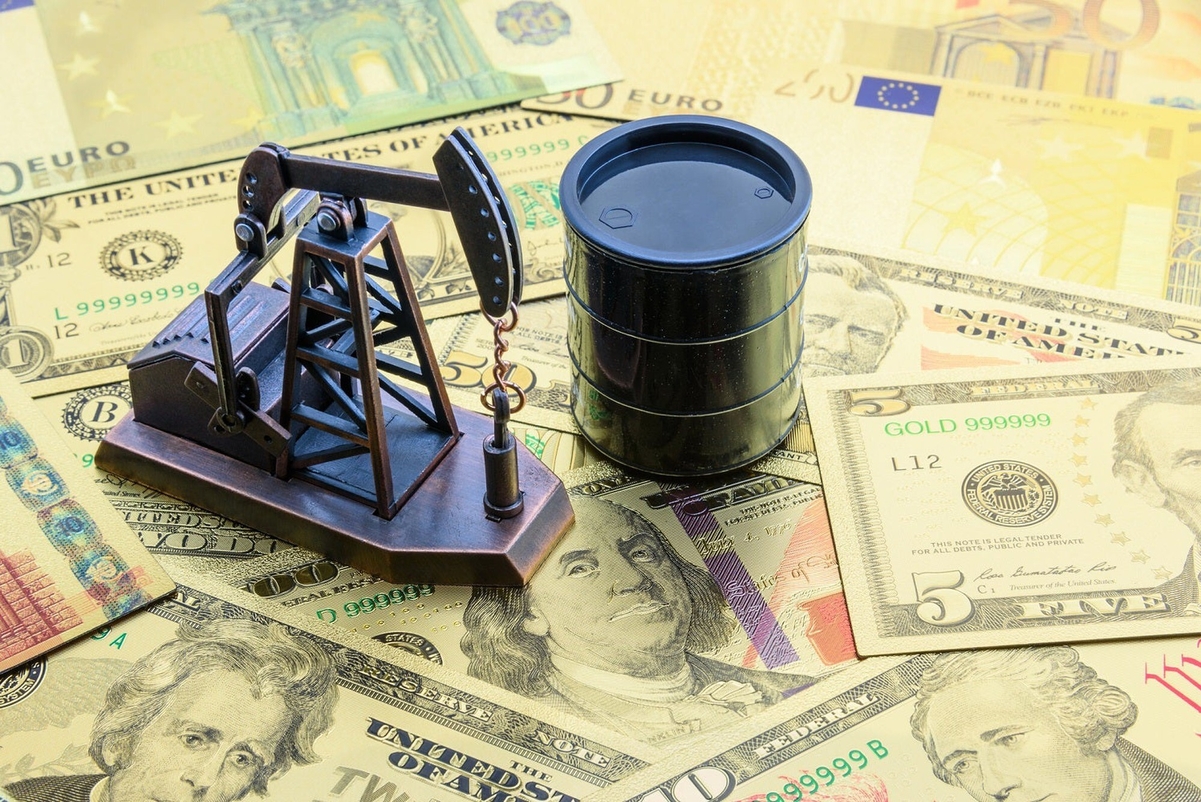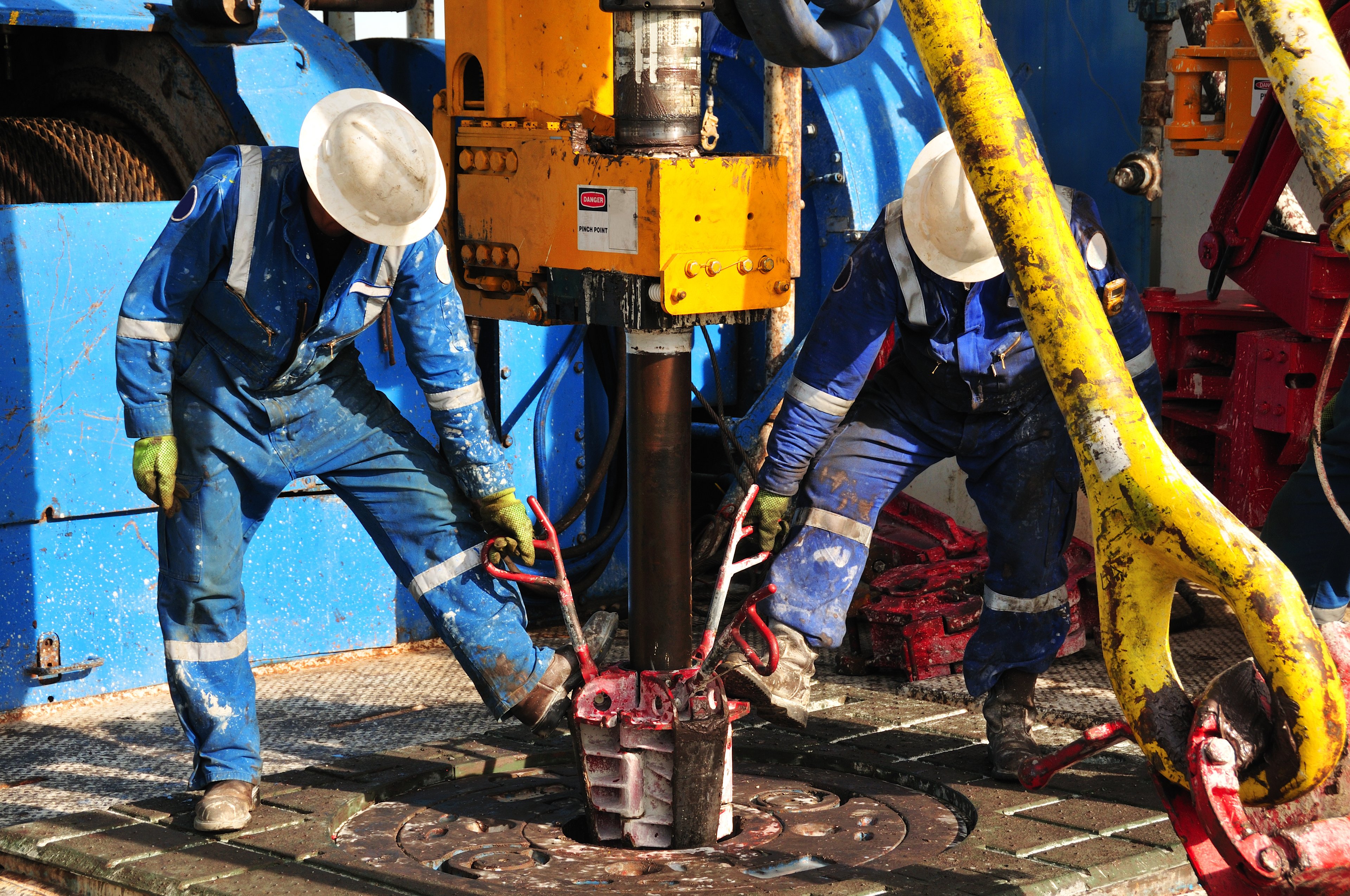According to a report by Bloomberg, Saudi Arabia wants to push the price of crude up from its current level of $65-$70 to near $80 a barrel. The Middle Eastern nation needs that price to boost the valuation of its national oil company, Saudi Aramco, which it plans to take public next year. Hitting its desired sell price would provide the Kingdom with the funds needed to jump-start an investment strategy that would wean its economy off petrol dollars over the next decade.
Saudi Aramco's valuation, however, isn't the only one that would benefit from a pop in the price of crude. Many oil producers in the U.S. restructured their operations to run on $50 oil, so if the Saudi strategy is successful, these oil companies would produce a gusher of cash flow, which could fuel high-octane gains for investors. While that rise would likely lift the entire sector, Devon Energy (DVN +2.83%) and Marathon Oil (MRO +0.00%) could outperform in that scenario.

Image source: Getty Images.
Down, but not out
Devon Energy has had a rough year so far, tumbling nearly 20% since January after reporting disappointing fourth-quarter results due to production problems outside of its control. That slump came even though the U.S. oil and gas giant quickly addressed those issues and then surprised investors by announcing plans to send them more cash this year by increasing the dividend 33% and authorizing a $1 billion share-buyback program.
Those repurchases could be just the catalyst needed to get Devon Energy's stock moving in the right direction -- similar programs from rivals have fueled big-time gains for their investors in the past year. Furthermore, that buyback is likely just the first step toward unlocking shareholder value. Devon is also planning to sell as much as $5 billion in assets to focus only on its best ones, which would also give it more cash to buy back its beaten-down shares. In addition, the company expects to generate $2.5 billion in free cash flow through 2020, and that's assuming oil averages $60 a barrel. Given its focus on drilling higher-margin wells, Devon should produce an even larger windfall of excess cash if the Saudis can push crude toward $80. These factors could give it a massive cash war chest to buy back stock in the coming years, which would move the needle for the $17.5 billion oil company.
Underperforming despite excellent results
Marathon Oil, meanwhile, hasn't done much over the past year, with its stock up about 7% overall despite a nearly 20% rally in the price of crude. That relative underperformance comes even though Marathon Oil delivered high-end results to finish 2017.
The oil producer anticipates more of the same in 2018: It expects to generate enough cash at $50 oil to pay its current dividend and invest the capital needed to increase production 12%. Things would get interesting, however, if crude rises above that level. "We are very oil-leveraged," said CEO Lee Tillman, noting that the company "will generate an incremental $500 million in operating cash flow" at $60 oil, with even more free cash possible as crude rises. While Marathon hasn't made plans to begin returning its anticipated windfall to shareholders above its current dividend, that's one of the many options the company could consider, especially as crude heads higher. A future buyback, when combined with higher earnings from rising oil prices, could prove to be a powerful catalyst that could reverse Marathon's recent underperformance.
The fuel to outperform
At current oil prices, Devon Energy and Marathon Oil should thrive, bringing in enough cash to fund their expansion programs with plenty to spare. While their stock prices don't yet reflect their ability to prosper in the current environment, they very likely would if oil were to move toward $80 a barrel. In fact, at that price level, both companies would generate billions of dollars in free cash, which they could pour into buying back stock, giving them even more fuel to rocket skyward.






